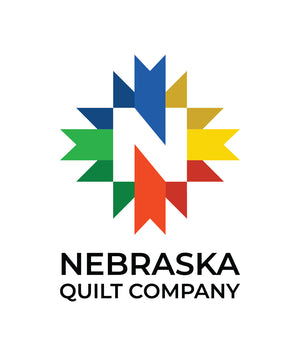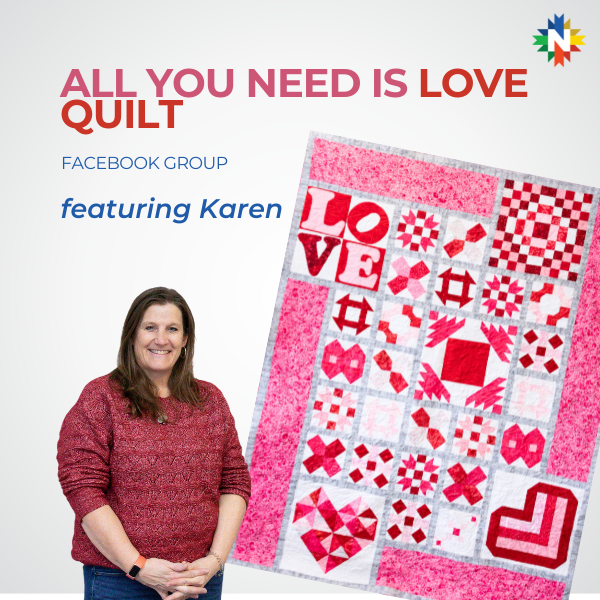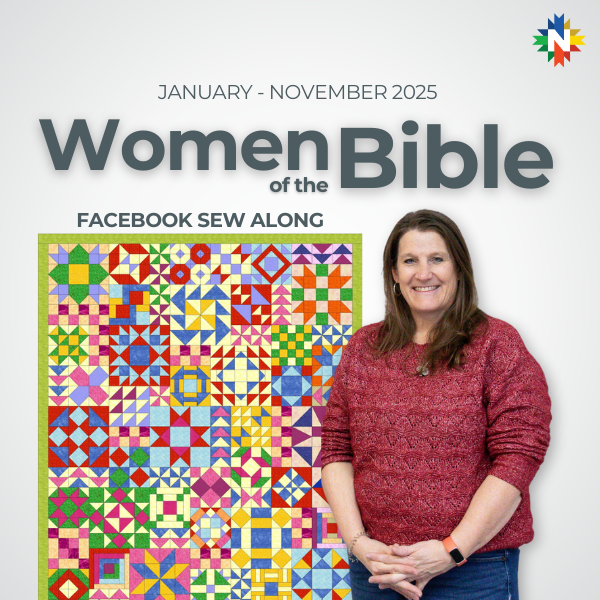embroidery, weaving, textile, sewing, yarn, knitting, needlework, craft, quilt, sewing machine, backstitch, needlepoint, dye, silk, knot, satin stitch, leather, sampler, textile arts, embroidered patch, creativity, straight stitch, bead embroidery, bead, workshop, chain stitch, pattern, pillow, satin, surface embroidery, linen, fiber, blackwork, knowledge, fiber art, skill, denim, cotton, sashiko, tapestry, machine, batik, nebraska, machine embroidery, international quilt museum, appliqué
How hard is it to get into quilting?
Getting into quilting can be easy with beginner-friendly classes and kits available. Start with simple projects like table runners or precut bundles. Join local quilting events or retreats for hands-on experience. Nebraska Quilt Company offers a variety of classes and events to help beginners get started.
Where do I start quilting?
To start quilting, consider taking beginner classes at Nebraska Quilt Company. Explore fabric options like batik, cotton, and cuddle/minky. Attend events like Tucker University for skill-building. Invest in a sewing machine from brands like BERNINA or Brother. Join the supportive community for guidance and inspiration.
What materials are needed for embroidery?
For embroidery, you will need embroidery floss, embroidery needles, an embroidery hoop, fabric, scissors, and a pattern or design to follow. Additionally, having a water-soluble fabric marker or transfer paper can be helpful for transferring designs onto the fabric.
Are online quilting classes effective?
Online quilting classes can be effective for learning new techniques, patterns, and skills. They offer flexibility, convenience, and access to expert instruction. Interaction with instructors and fellow students, along with video demonstrations, enhance the learning experience. Practice and application are key to maximizing the benefits of online quilting classes.
What are the basics of quilting?
Quilting basics involve selecting fabric, cutting pieces accurately, sewing them together with a consistent seam allowance, pressing seams, assembling blocks, adding borders, layering with batting and backing, quilting the layers together, and finishing with binding for a polished look. Practice and patience are key.
How do I organize a sewing retreat?
To organize a sewing retreat, consider the following steps:
Choose a suitable location with ample space and good lighting.
Plan a schedule with a mix of sewing time, classes, and social activities.
Offer a variety of projects for different skill levels.
Provide a list of required supplies in advance.
Promote the event through social media, email newsletters, and local sewing groups.
Ensure there are experienced instructors or facilitators available.
Offer optional add-ons like meals or accommodation for out-of-town attendees.
Create a welcoming and inclusive atmosphere for all participants.
Can beginners join embroidery workshops?
Beginners can absolutely join embroidery workshops! These workshops are designed to cater to all skill levels, including those new to embroidery. You'll have the opportunity to learn basic techniques, stitches, and tips from experienced instructors. It's a great way to start your embroidery journey and enhance your skills in a supportive environment.
What techniques are taught in quilting classes?
Quilting classes teach various techniques such as stack-n-whack curved piecing, barn quilt creation, rapid fire lemoyne star, and more. Students can also learn about machine-specific skills in brand-specific owner classes. These classes offer a range of projects and skills for quilters of all levels.
How long does a quilting class last?
Quilting classes at Nebraska Quilt Company typically vary in duration, ranging from a few hours to full-day sessions. The length of a class depends on the specific project or technique being taught. Classes can last anywhere from 1 hour for quick projects to 6-8 hours for more intricate techniques or larger projects.
What projects suit a sewing retreat?
Sewing retreats are ideal for various projects like quilting, table runners, stack-n-whack piecing, hot pads, barn quilts, and more. Classes, events, and open sew sessions cater to different skill levels and interests, offering a diverse range of projects to suit everyone's preferences.
How do I choose an embroidery kit?
When choosing an embroidery kit, consider the design complexity, included materials, hoop size, and instructions. Look for kits with quality threads and fabric. Check reviews for user experiences. Select a kit that matches your skill level and desired project outcome.
Whats the cost of a quilting class?
The cost of a quilting class varies depending on the specific class. Prices range from $5 for open sew sessions to $150 for more advanced classes. Check the class descriptions for exact pricing. Contact Nebraska Quilt Company for detailed information on class costs.
Are there quilting workshops for advanced sewers?
Yes, there are quilting workshops for advanced sewers available at Nebraska Quilt Company. These workshops cover topics like Tucker University, machine-specific classes, and project-based classes. Check the calendar for upcoming events and classes tailored to advanced quilters.
How often do embroidery workshops occur?
Embroidery workshops occur regularly at Nebraska Quilt Company. The schedule includes various classes and events throughout the month, such as Tucker University sessions, sewing retreats, machine-specific discovery events, open sew days, and themed sewing projects like barn quilt classes and hot pad making.
What is the best season for sewing retreats?
The best season for sewing retreats is typically fall or winter when the weather is cooler, making it cozy to spend time indoors quilting. These seasons also align with holiday breaks, allowing for longer retreat durations. Considerations like holiday-themed projects can add to the festive atmosphere.
How do I prepare for a quilting class?
To prepare for a quilting class, gather the required materials listed by the instructor, such as fabric, sewing machine, thread, and cutting tools. Familiarize yourself with basic quilting terms and techniques. Practice cutting and piecing fabric to build confidence before the class.
Can quilting be self-taught?
Quilting can absolutely be self-taught through online tutorials, books, and practice. Joining quilting communities, attending workshops, and experimenting with different techniques can enhance skills. Starting with simple projects and gradually progressing helps build confidence and expertise in quilting.
What safety tips are important for quilting?
When quilting, important safety tips include using sharp rotary blades, proper cutting techniques, keeping fingers away from the blade, using a cutting mat, storing tools safely, and taking breaks to prevent strain. Additionally, ensure a well-lit workspace and follow machine safety guidelines.
How do I find local sewing retreats?
To find local sewing retreats, check Nebraska Quilt Company's event calendar for upcoming retreats. You can also join their classes and events for sewing retreat opportunities. Follow their social media pages for updates on retreats and events. Contact the store directly for more information.
What are common embroidery stitches for beginners?
Common embroidery stitches for beginners include the backstitch, running stitch, satin stitch, and French knot. These stitches are simple to learn and versatile for various embroidery projects. Practice and master these basic stitches to enhance your embroidery skills.
Is hand quilting better than machine quilting?
Both hand quilting and machine quilting have their own advantages and charm. Hand quilting offers a traditional, personal touch with intricate designs, while machine quilting is faster and more efficient for modern quilters. The choice depends on personal preference, project requirements, and desired outcome.
What themes are popular for sewing retreats?
Themes popular for sewing retreats include Tucker University classes, faith-based projects, open sew days, machine-specific events, and seasonal projects like holiday hot pads and barn quilts. Retreats often offer a mix of skill-building workshops, social sewing opportunities, and special events tailored to various interests within the sewing community.
How do I advertise my embroidery workshop?
To advertise your embroidery workshop effectively, consider utilizing social media platforms like Facebook and Instagram to create engaging posts. Collaborate with local craft stores or sewing groups to spread the word. Design eye-catching flyers and distribute them in relevant areas. Utilize email marketing to reach potential participants. Additionally, consider partnering with influencers or bloggers in the crafting niche to promote your workshop to a wider audience.
What age group attends quilting classes?
Quilting classes typically attract a diverse age group, ranging from young adults to seniors. Participants often include individuals looking to learn a new skill, hobbyists seeking creative outlets, and seasoned quilters honing their techniques. The welcoming environment encourages all ages to join and enjoy the art of quilting together.
How do I enhance my quilting skills?
To enhance your quilting skills, consider taking classes or attending events like Tucker University or themed retreats. Practice with precuts and different fabrics, explore new techniques, and join online sewing communities for inspiration and support. Invest in quality machines and accessories for efficient quilting.
What is the duration of a sewing retreat?
The duration of a sewing retreat can vary depending on the event. Retreats may last from a single day, such as a few hours or a full day, to multiple days, typically spanning from two to five days. Each retreat's schedule and activities will determine the exact duration.
Are there any quilting competitions for beginners?
There are quilting competitions for beginners, such as local quilt shows, guild competitions, and online challenges. These events provide a platform for showcasing beginner quilting skills, gaining experience, and connecting with the quilting community. Participating can be a fun and rewarding way to improve quilting techniques and creativity.
How do I maintain my quilting equipment?
To maintain your quilting equipment, regularly clean and oil your machine, change needles often, use high-quality thread, and store supplies in a dry, dust-free area. Attend maintenance classes, follow manufacturer guidelines, and have your machine serviced annually for optimal performance.
What are the benefits of attending sewing retreats?
Attending sewing retreats offers a chance to enhance skills, connect with fellow enthusiasts, and gain inspiration. Retreats provide focused learning opportunities, access to new techniques, and a supportive community. They allow for uninterrupted sewing time, relaxation, and the chance to work on projects in a dedicated environment.
Can quilting classes help start a business?
Quilting classes can be beneficial for starting a quilting business by providing essential skills, networking opportunities, and inspiration. Learning techniques, gaining confidence, and connecting with fellow quilters can help develop a unique style and build a customer base. Additionally, classes offer insights into product development, pricing, and marketing strategies crucial for a successful quilting business.
quilting classes near me, nebraska quilt company, quilting classes, quilting classes Nebraska, sewing workshops Fremont NE, quilting retreats Nebraska, Tucker University classes, national educator events, open sew Thursdays, sip and sew events, first Saturday sew day, Bernina owner's class, Brother owner's class, HandiQuilter owner's class, longarm quilting classes, embroidery workshops, quilt kit classes, fabric selection workshops, quilting techniques seminars, beginner quilting classes, advanced quilting workshops, quilting community events, , quilt shops omaha, sewing classes near me, fabric stores omaha


























